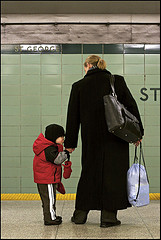 The Minneapolis Star-Tribune reports on the difficulty graduates face finding employment after completing college. Some of these students are choosing programs like the Peace Corps which are becoming increasingly difficult to be placed in.
The Minneapolis Star-Tribune reports on the difficulty graduates face finding employment after completing college. Some of these students are choosing programs like the Peace Corps which are becoming increasingly difficult to be placed in.
Star-Tribune reporter Emma Carew writes:
This year, as the economy hit a downturn and employers cut jobs instead of creating them, a record number of graduates applied to programs that try to change the world — something experts believe is a top priority for today’s youth.
At Teach For America, a two-year program that places college graduates in low-performing schools around the country, the number of applicants fell in 2007 but this year jumped 36 percent to nearly 25,000 would-be teachers. Only 3,700 are placed. When the program began in 1990, 2,500 students applied. Even the Peace Corps, now in its 47th year, has had a 14 percent increase in applicants so far this year over last.
And the sociological commentary…
Teresa Swartz, professor of sociology at the University of Minnesota, said current college graduates are experiencing an extended period of adolescence, as the gap between high school and adulthood widens.
It’s harder for students to make livable wages right out of school, so they spend a few years exploring, she said.

 A
A 